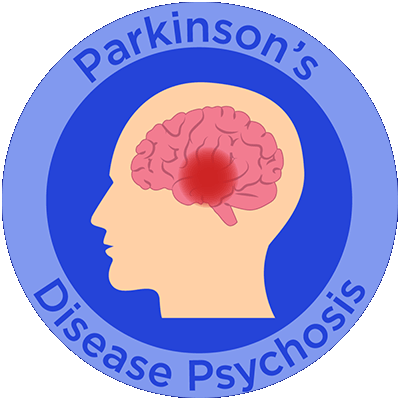Reading and Resources
Societies and Associations
|
Resource |
Address |
|
American Academy of Neurology |
|
|
American Parkinson Disease Association |
|
|
Michael J. Fox Foundation |
|
|
Parkinson Alliance |
|
|
Parkinson’s Foundation |
Combs BL, Cox AG. Update on the treatment of Parkinson’s disease psychosis: role of pimavanserin. Neuropsychiatr Dis Treat. 2017;13:737-744. https://pubmed.ncbi.nlm.nih.gov/28331324/.
Dorsey ER, et al. Projected number of people with Parkinson disease in the most populous nations, 2005 through 2030. Neurology. 2007;68:384-386. https://www.ncbi.nlm.nih.gov/pubmed/17082464
Espay AJ. Management of motor complications in Parkinson disease: current and emerging therapies. Neurol Clin. 2010;28:913-925. https://www.ncbi.nlm.nih.gov/pubmed/17082464
Espay AJ et al. Optimizing extended-release carbidopa/levodopa in Parkinson disease: Consensus on conversion from standard therapy. Neurol Clin Pract. 2017;7:86-93. https://www.ncbi.nlm.nih.gov/pubmed/28243505
Fasano A, et al. Gastrointestinal dysfunction in Parkinson’s disease. Lancet Neurol. 2015;14:625‐639. https://www.ncbi.nlm.nih.gov/pubmed/25987282
Fenelon G, Soulas T, Zenasni F, Cleret de Langavant L. The changing face of Parkinson’s disease-associated psychosis: a cross-sectional study based on the new NINDS-NIMH criteria. Mov Disord. 2010;25(6):763-766. https://pubmed.ncbi.nlm.nih.gov/20437542/.
Hacksell U, Burstein ES, McFarland K, Mills RG, Williams H. On the discovery and development of pimavanserin: a novel drug candidate for Parkinson’s psychosis. Neurochem Res. 2014;39(10):2008-2017. https://pubmed.ncbi.nlm.nih.gov/24682754/.
Krishnan S, et al. Do nonmotor symptoms in Parkinson’s disease differ from normal aging? Mov Disord. 2011;26:2110-2113. https://www.ncbi.nlm.nih.gov/pubmed/21661056
Lenka A, Hegde S, Jhunjhunwala KR, Pal PK. Interactions of visual hallucinations, rapid eye movement sleep behavior disorder and cognitive impairment in Parkinson’s disease: a review. Parkinsonism Relat Disord. 2016;22:1-8. https://pubmed.ncbi.nlm.nih.gov/26639978/.
Müller T. Safinamide: an add-on treatment for managing Parkinson’s disease. Clin Pharmacol. 2018;10:31-41. https://www.ncbi.nlm.nih.gov/pubmed/29670409
Nyholm D, et al. Pharmacokinetics of levodopa, carbidopa, and 3-O-methyldopa following 16-hour jejunal infusion of levodopa-carbidopa intestinal gel in advanced Parkinson’s disease patients. AAPS J. 2013;15:316-323. https://www.ncbi.nlm.nih.gov/pubmed/23229334
Olanow CW, et al. Continuous intrajejunal infusion of levodopa-carbidopa intestinal gel for patients with advanced Parkinson’s disease: a randomised, controlled, double-blind, double-dummy study. Lancet Neurol. 2014;13:141-149. https://www.ncbi.nlm.nih.gov/pubmed/24361112
Pahwa R, et al. Amantadine extended release for levodopa-induced dyskinesia in Parkinson’s disease (EASED Study). Mov Disord. 2015;30:788-795. https://www.ncbi.nlm.nih.gov/pubmed/25650051
Parkinson’s Foundation. Psychosis: a mind guide to Parkinson’s disease.
https://www.parkinson.org/pd-library/books/Psychosis-A-Mind-Guide-to-Parkinsons-Disease.
Politis M, et al. Parkinson’s disease symptoms: the patient’s perspective. Mov Disord. 2010;25:1646-1651. https://www.ncbi.nlm.nih.gov/pubmed/20629164
Thanvi BR, Lo TC, Harsh DP. Psychosis in Parkinson’s disease. Postgrad Med J. 2005;81(960):644-646. https://pubmed.ncbi.nlm.nih.gov/16210460/.






